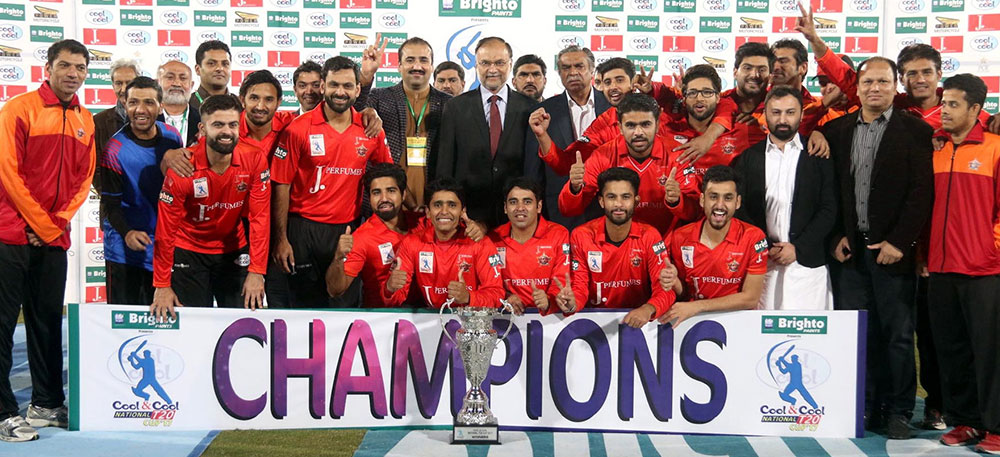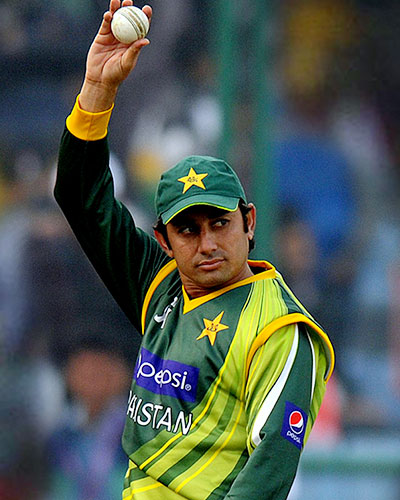BREAKING BOUNDARIES: CRICKET’S EVOLUTIONARY ESCAPADE
- 20 Apr - 26 Apr, 2024

It was a curious and quite a low-key National T20, though it had its significant moments. The most bizarre element of it was that the defending champion did not participate; rather was not allowed to by the PCB! I cannot recall any domestic tournament, perhaps even an international one, in any sport where the winners from the previous year were not included in the subsequent tournament. Yes, there are qualifying rounds and there is the odd occurrence. But in the case of PCB’s National T20, there was no qualifying round.
Instead the most ridiculous criteria was used and that was the ranking of the team in the previous first class cricket tournament. Talk about comparing apples and oranges. The PCB had revamped the 18-team event that took place in 2015 which was cut down to eight teams in 2016.

In that case, the PCB should have held a qualifying tournament with the seventh and eighth placed teams from 2016, competing with the bottom 10 teams for a place in 2017. It happens in ICC tournaments. But what doesn’t happen there is that teams for a Twenty20 tournament are selected based on their Test rankings! Different styles of cricketers are played in the longer game by the selectors and coach. How can the shorter game specialist be penalised for the fault of other players? Some of whom admittedly played in both formats.
This happened last year as well with the same protest. However at that time Peshawar, winners in 2015, were in the top eight of the first class tournament. This year Karachi Blues were not, and hence a defending champion was not allowed to defend its title. Ridiculous.
Nevertheless, the tournament produced two significant happenings. The first was a world record opening partnership of 209 by two openers Salman Butt and Kamran Akmal, who once opened for Pakistan in the shorter formats at varying times. And it was an unbeaten stand, very rare in T20 cricket. Lahore, thus etched the highest innings score by a team without losing a wicket.
Butt got only past 50 but Kamran went on for a huge hundred, with 158 not out. His stats on the way are astonishing. He became the first Pakistani batsman to score 150 runs in Twenty20s. Highest score by a wicketkeeper batsman overall (Previous: 126* by Quinton de Kock. Kamran Akmal also scored 71.77% of the total runs posted by Lahore Region Whites, which is the highest by any batsman in the format anywhere in the world.
He also smashed the most 6s (12) in an innings by a Pakistani batsman in T20s (the previous best was 10 by Bilal Asif). It was also the most number of 6s by a wicketkeeper-batsman in an innings (he now holds this record jointly with Nicky van den Bergh). It was also a case of most runs from fours and sixes by a Pakistani batsman (previously the record was held jointly by Sharjeel Khan and Mukhtar Ahmed).
Lastly, he now has most hundreds (3) in T20 cricket by a Pakistani wicketkeeper. Only South Africa’s Quinton de Kock has the same number. Overall he became the third batsman to make five consecutive 50s in T20 cricket.
The question has once again sprung up whether he should be called back into Pakistan’s National T20 team or the ODI side. I would be strongly against it. When he was brought back in West Indies based on the previous year’s performance, he disappointed. His fielding too was below par, naturally difficult for any wicketkeeper in the outfield.
Also, batting on Pakistani pitches against the sort of bowling he faced will be immensely different from what he will face in New Zealand where Pakistan are to play their next tour. If Fawad Alam cannot be picked in Tests despite an average of over 50 in first class cricket over the last three years, how can one flash in the pan be enough for a recall? Especially when it proved no good last year.
Likewise there is talk of bringing back Salman Butt. As someone said he was the most educated cricketer on the English tour of 2010; he knew the risks he was running. And that he involved two of Pakistan’s best bowlers. He therefore carries a higher responsibility than Amir who was brought back by Pakistan.
The question of whether he should come back is secondary to this principle. Yes, he may have topped the averages in the National T20, but like Kamran Akmal, it is another thing to rack up the runs here and another to do that at the international level after a gap of seven years.
Now to the other significant happening in the National T20 tournament – the departure of Saeed Ajmal from all formats except the T20, but that too in foreign leagues. As he said in his retirement announcement, “I want to remain available for foreign T20 leagues, other than the PSL, and want to continue to play the format.”
It was a disappointing end, though similar big names around the world have gone out in their final game to empty stands. They never got a farewell at international level as they hoped to return and never announced their retirement. In fact, till not too long ago in Pakistan, very rarely was Test retirement announced before the final game. Misbah-ul-Haq and Younis Khan are the latest exceptions. Even greats like Wasim Akram and Waqar Younis kept hoping for a recall after the 2003 World Cup disaster.
Saeed Ajmal has been a great servant of the game. Throughout his career he was never involved in any fixing controversy, nor even sledging. He was a gentleman cricketer and bowled Pakistan to a series of victories before he was called out for his bowling action; and this after being cleared once by ICC.
Can we side with him when he says PCB could have done better in fighting his case? That will remain a moot point. Perhaps better PR with ICC could have won him a reprieve but by then Pakistan had Yasir Shah and I suppose PCB thought it water under the bridge.
He will be best remembered for the devastating bowling against England where Pakistan clean swept the series. He was both an artful and cunning bowler, getting some English batsmen out as they waited for his Teesra which was never in the making, just a ruse.
He was like Mike Hussey, being given his due after he had crossed the age of 30. And like the Australian, he made people question why he had to wait for so long. Credit to him that he took to the pressures of international cricket with calm and poise that was to become symbolic of his bowling. It is indeed sad that he waved his final goodbye to Pakistani cricket in front of an empty stadium in a tournament that was overshadowed by the political developments happening around the city. Such are the ironies of fate. •
COMMENTS